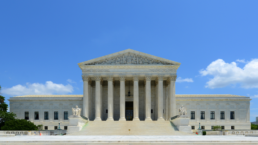The Supreme Court isn’t a friend of workers. So a recent ruling that retirees can sue employers who help investment firms rip them off with high fees and poor performance is a rare and crucial win.
By Matthew Cunningham-Cook, Jacobin
A unanimous Supreme Court ruling Monday in Hughes v. Northwestern University ensures that Americans will still be able to sue employers and Wall Street banks that bleed dry their retirement accounts — a landmark precedent in protecting the $7.3 trillion Americans hold in 401(k) accounts.
The 8-0 ruling, written by Sonia Sotomayor, found that 401(k) plan participants could continue to take legal action against employers for including high-fee, high-risk investments in their 401(k) lineup, even if they also included lower-fee, lower risk options.

The decision could be a blow against powerful private equity industry titans, who for years have been aiming to convince 401(k) plans to include their high-fee, high-risk offerings. Blackstone Group CEO Stephen Schwarzman has said accessing retirees’ 401(k) accounts was “one of our dreams.”
With 3.5 million American seniors being unable to afford the cost of prescription drugs, and 5.2 million elders who are food insecure, the new ruling could trigger additional litigation that forces improved governance in 401(k)s — potentially saving Americans hundreds of billions of dollars in collective fees.
“It’s going to affect massive numbers of people,” said Jerry Schlichter, the St Louis-based attorney who brought the Hughes case before the court. “Because the 401(k) is America’s retirement system now.”
Currently, the median 401(k) balance for Americans sixty-five and older is just $64,548. That amount could be as much as 40 percent higher, if it wasn’t for fees paid to Wall Street.
Recent Posts
Stop Israel’s Dystopian “Humanitarian City” Plan—Before It’s Too Late
July 11, 2025
Take Action Now For the past 20 months, the world has watched—and largely enabled—a genocidal campaign in Gaza. Over 55,000 Palestinians have been…
The “Liberal” International Order Is Criminalizing Palestine Protests
July 11, 2025
Take Action Now As Western governments repress Palestine solidarity and enable Israel’s impunity, the “liberal international order” is no longer…
Politicians Are Betraying Gen Z On Climate
July 10, 2025
Take Action Now While Gen-Zers thrift, knit, crochet, and find other ways to reduce our footprints, Trump and the GOP are greenlighting more climate…
Trump’s Deportation Threat Against Zohran Mamdani Is Shameful
July 10, 2025
Take Action Now In only half a year of Donald Trump’s presidency, he and his allies have turned deportation into an explicitly political threat…




